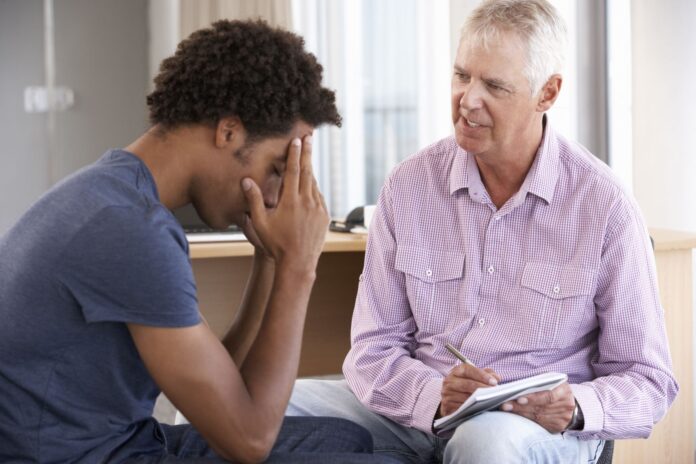An Introduction to Health Programs
People enrolled in these programs are given care, medical support, and counseling, so they can stay at home. They treat addiction by offering therapy sessions as well as medical help.
Outpatient care is popular because it suits people’s regular schedules. They are allowed to study or go to work while they are receiving treatment. In these programs, you decide how often and when to receive care.
Purpose of Outpatient Behavioral Health Programs
In outpatient programs, people attend treatment sessions according to their schedule. People visit the clinic for therapy sessions as well as for routine medical exams. After every day of treatment, they leave for home rather than staying at a detox facility.
Their level of intensity and how much time is needed varies from one to another. Attendance is every day for some, whereas some only meet weekly. Usually, treatment involves individual sessions, joining groups and practicing new skills. The aim is to assist people in their healing without causing major changes in their daily lives.
Types of Treatment Provided Through Outpatient Programs
On average, outpatient visits for these programs are held one to three times every week. They usually take just under an hour per session. They are designed for patients who have light symptoms or are moving from intensive care.
People in IOPs are asked to spend more time each week. Patients go to therapy three to five days per week and each session is a few hours long. Partial hospitalization programs are designed to be the most structured. The runs last five to seven days every week, each day ranging from four to six hours.

Advantages of Choosing to be Treated on an Outpatient Basis
People can gain real-life experience with outpatient care. They can use the skills from therapy in the situations they face each day. Performing immediately allows you to work on your resilience and feel more confident.
Getting care as an outpatient is often more affordable than being admitted to the hospital. Large amounts of people can benefit from these services because insurance usually covers them. Having family and friends around aids patients in their recovery process.
Receiving Addiction Treatment on an Outpatient Basis
With addiction treatment through outpatient programs, people follow a set method of recovery. They rely on techniques that are scientifically proven, for example, both cognitive behavioral therapy and motivational interviewing. They assist people in watching for triggers and learning to react better.
If appropriate, medication is included in the outpatient addiction services offered. They provide drug testing as another means of holding themselves accountable. Family therapy offers support to families affected by substance use and fosters a strong and comfortable atmosphere at home.

Who Are the Programs Useful For?
People living with depression, anxiety, PTSD, or similar conditions usually benefit from seeing a specialist while living at home. People with mild or moderate symptoms that do not require round-the-clock care can attend day treatment. If a person takes part in treatment with enthusiasm, they often achieve the best results.
Outpatient treatment can help people who have a stable home life. Those who have strong support and dependable transit can benefit from these services more than others. Individuals with recent recovery or a combination of problems may benefit from such regular support.
Guidance on Your First Experience in Therapy
In the beginning, sessions are meant to gather information and build a strong relationship. A specialist will gather information about your symptoms, your past medical history, and your treatment intentions. Your needs may be learned through questionnaires or different types of tools.
Your provider and you will work out a treatment plan that is right for you. It indicates the therapy to be used, the number of sessions and what needs to be achieved. The provider will explain things to you and answer every question you have about the program.
How Outpatient Programs Treat Patients
This therapy works on changing your unhealthy thoughts to better ones. The goal of dialectical behavior therapy is to train people how to be mindful, control their distress, regulate their emotions and interact with others better. They allow individuals to cope with tough situations and feelings.
Group therapy allows patients to find comfort and support from other participants. Through art and music therapy, people can express their emotions. Some programs offer activities such as yoga, meditation, and nutrition counseling to help treat patients overall.
Where to Look for the Right Program
Look into several possibilities before deciding on treatment. Philip, I recommend phoning various providers to understand how they operate, about their qualified staff and which insurances they accept. Try to visit a facility to check it out and speak with potential therapists.
Take into account issues like the place, the time it will take, and overall expenses. An effective program should meet your needs as a medical professional and suit your way of life. Feel free to ask how frequently the procedure is successful and how a different treatment plan will be made if needed.
Ways to Support a Person in Outpatient Treatment
Be positive without putting any pressure on them. When your loved one wants to share what they went through, make sure to listen attentively. Since the journey is not simple, having setbacks along the way is normal.
Familiarize yourself with their condition to gain insight into what they are experiencing. See if there is anything you can do to get your loved one to appointments and doctors. If someone invites you to family therapy, consider going, as it often helps improve the treatment results.
Options of insurance and various types of payment
Most types of health insurance cover programs for mental health and addiction treatment. This Act ensures that people get equal coverage for both mental and physical health care. Review your benefits to understand all the details, including the need for pre-authorization.
Some facilities set their fees at a sliding scale for people without health insurance. There are options where you can spread out the payments for treatment. You can check with community mental health centers for funding options or be assisted in getting financial help.
The possible outcomes and results after treatment
Many conditions benefit from the good outcome achieved with Outpatient Health Programs. Various studies prove that people who participate regularly in physical activity show improvement in their health and enjoy life more. To be successful, one must complete the program and keep practicing the skills taught.
People benefit from continued support and planning after the program. Attending AA, NA, or SMART Recovery while getting formal treatment is helpful. A booster session can also help people who have finished the main part of the program.

Situations When Patients May Need More Intensive Care
Outpatient care might not address the issue if the person is considering hurting themselves, neglects self-care, or is under the influence of drugs. If the person’s symptoms do not improve despite following the treatment, it may suggest that higher care is required.
Should outpatient therapy fall short, it does not mean that it failed. Different situations sometimes require different types of care.
Final Thoughts
Outpatient Behavioral Health Programs assist a wide range of people with mental health and substance abuse issues. They assist at home so that people can still meet their daily needs. If you commit to the right program, it is possible to get better from addiction.
Taking help from others is a brave action and not a sign of being weak. If struggling with depression or if you suspect someone in your family is affected, speak to a healthcare worker for an assessment. The earlier a problem is recognized, the better the results can be. For further details on health, visit DP World News.





